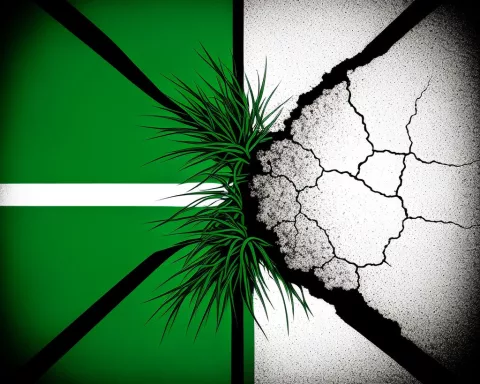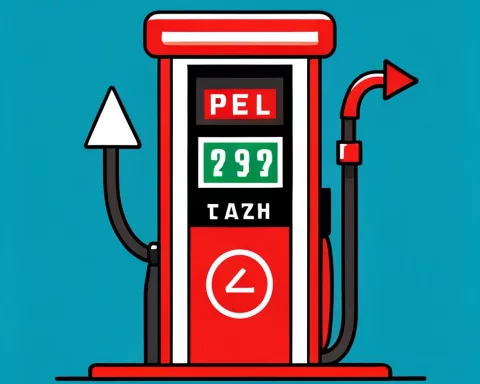South Africa is facing a VAT hike from 15% to 16%, which makes life harder for many families, especially those with low incomes. This increase will raise prices on everyday items, like food and electricity, pushing struggling households into even deeper financial trouble. While the government claims this tax is needed to boost revenue for public services, it does little to fix bigger problems like unemployment and poverty. Instead of just raising taxes, the government should focus on creating jobs and supporting small businesses to help everyone thrive. Without real change, the future looks tough for many South Africans.
What is the impact of the VAT hike in South Africa?
The VAT hike from 15% to 16% in South Africa exacerbates economic struggles for low-income households, increasing costs for essential goods and services. It disproportionately affects the poor, while failing to address systemic issues like unemployment and poverty, necessitating long-term reforms for sustainable growth.
A Familiar Financial Quandary
South Africa once again stands on the verge of another VAT hike, with the rate set to rise from 15% to 16%. For many, this news evokes a strong sense of déjà vu. It appears to be a recurring strategy to balance the national budget at the expense of everyday citizens. This decision impacts far more than just the country’s finances; it significantly affects those already struggling to make ends meet in a challenging economic environment.
Life for the average South African is already fraught with difficulties. With inflation on the rise, skyrocketing food prices, and soaring energy costs, people are under immense pressure. To compound these issues, the government has chosen to increase VAT—a tax that affects everyone, regardless of income level. Consequently, the cost of essential goods and services will rise, hitting the poorest the hardest and pushing them further into financial hardship. For many, reducing expenditures on basic needs like food and electricity isn’t an option.
The government’s justification for this VAT hike is the need to generate additional revenue, which will be allocated to public sector wage increases and infrastructure projects. However, VAT is a regressive tax, disproportionately affecting lower-income households. These households spend a larger percentage of their income on VAT-inclusive items such as food and utilities. Therefore, even a small increase in VAT feels like a significant burden. On the other hand, higher-income earners barely notice the difference as they spend a smaller portion of their income on these essentials.
The Long-Term Repercussions
Taking a step back to consider the long-term impact of this tax hike raises an important question: Is increasing VAT genuinely an effective way to address our budgetary issues? The unfortunate reality is that it is not. While the additional tax revenue might offer a quick fix, it doesn’t address the underlying problems plaguing our economy. High unemployment rates, widespread poverty, and rampant corruption continue to drain critical resources. If the government is genuinely committed to resolving these issues, they must look beyond short-term solutions and focus on initiatives that foster long-term growth and job creation.
Small businesses, already struggling to recover from the pandemic, now face the additional burden of increased VAT. Higher operational costs will likely be passed on to consumers, making everyday goods and services even less affordable. Small enterprises, which form the backbone of South Africa’s economy, will feel the strain, and some may even be forced to close. This creates a vicious cycle: higher costs lead to increased prices, which in turn reduce consumer demand, slowing down economic growth.
Rather than resorting to a blanket VAT increase, the government should focus on reforms that tackle the root causes of our financial crisis. This means fostering job creation, supporting local businesses, and broadening the tax base—not merely increasing taxes on those who are already struggling. We need a fairer tax system that addresses inequities rather than exacerbating them.
Learning from History and Other Sectors
The VAT hike sends a disheartening message to South Africans. At a time when people are already enduring significant economic hardship, the government’s decision to take more from them feels like a betrayal. The government should prioritize policies that inspire hope and resilience among its citizens, rather than deepening their sense of frustration and helplessness.
Historical tax reforms offer valuable insights. During the Great Depression, President Franklin D. Roosevelt’s New Deal focused on job creation and social security rather than merely increasing taxes. This approach helped the U.S. recover from economic despair. Similarly, South Africa needs a strategy that looks beyond immediate revenue generation. Comprehensive reforms that create jobs and stimulate economic activity are essential for long-term recovery.
The arts and culture sector also provides lessons in resilience and innovation. In times of economic difficulty, communities often turn to creativity and solidarity to cope. This spirit of ingenuity and cooperation should inspire our economic policies. Instead of imposing a regressive tax, the government could explore alternative revenue streams such as taxing luxury goods or introducing a progressive tax system that places a greater burden on those who can afford it.
The Social and Economic Risks
Additionally, the VAT hike threatens to undermine social cohesion by exacerbating inequality. It widens the gap between the rich and the poor, increasing the risk of social unrest and instability. History demonstrates that societies with high levels of inequality often experience more social strife. The French Revolution, for example, was driven by economic disparities and oppressive taxation. South Africa must heed these lessons to avoid similar pitfalls.
Moreover, the VAT increase could stifle innovation. Entrepreneurs and small business owners, who are crucial for driving economic growth and innovation, will find it more challenging to invest in new ideas and ventures. The Silicon Valley boom, for instance, was partly due to a supportive tax environment that encouraged risk-taking and innovation. South Africa needs to create a similar environment to foster creativity and economic dynamism.
A Multifaceted Approach is Needed
In conclusion, the impending VAT hike in South Africa raises more questions than it answers. While it may provide a temporary financial cushion, it fails to address the underlying economic issues. A multifaceted approach is required—one that promotes long-term growth, supports small businesses, and ensures a fair tax system. The government must prioritize policies that uplift its citizens, rather than pushing them further into economic despair. South Africa’s economic challenges are complex and demand thoughtful, innovative solutions that go beyond quick fixes.
FAQ on the Upcoming VAT Hike in South Africa
What is the planned VAT increase in South Africa?
The VAT rate in South Africa is set to increase from 15% to 16%. This change will have significant implications for the cost of essential goods and services, particularly affecting low-income households.
How will the VAT hike impact low-income families?
The increase in VAT will disproportionately burden low-income families, as they spend a larger percentage of their income on VAT-inclusive items such as food and utilities. This hike is expected to push struggling households deeper into financial hardship, as the cost of everyday necessities rises.
What reasons has the government given for the VAT increase?
The government justifies the VAT hike as a necessary measure to generate additional revenue for public services, such as wage increases for public sector workers and infrastructure projects. However, critics argue that this does not address the systemic issues of high unemployment and poverty.
What alternatives could the government consider instead of raising VAT?
Rather than increasing VAT, the government could implement reforms aimed at creating jobs, supporting small businesses, and broadening the tax base. Exploring alternatives like taxing luxury goods or establishing a progressive tax system could alleviate the financial burden on lower-income households.
How might the VAT increase affect small businesses?
Small businesses, which are essential to South Africa’s economy, may face increased operational costs due to the VAT hike. These costs are likely to be passed on to consumers, leading to higher prices and potentially reduced consumer demand. Some businesses might struggle to survive, which could stifle economic growth.
What are the long-term consequences of the VAT hike?
The VAT increase could exacerbate social inequality and undermine social cohesion, leading to increased risks of unrest and instability. Additionally, it may stifle innovation, as entrepreneurs might find it harder to invest in new ideas and ventures, hindering overall economic dynamism. A comprehensive approach is needed to foster long-term growth and sustainability.












